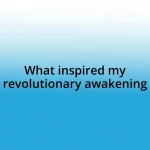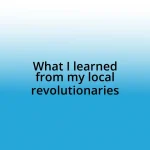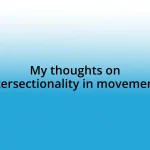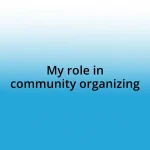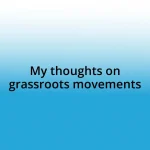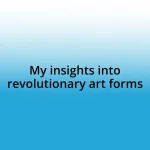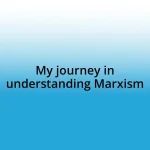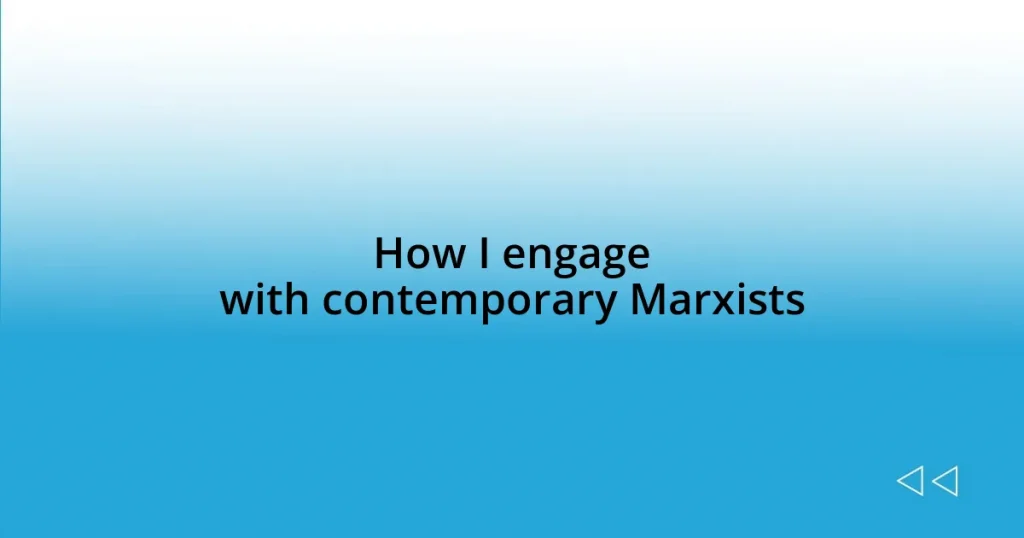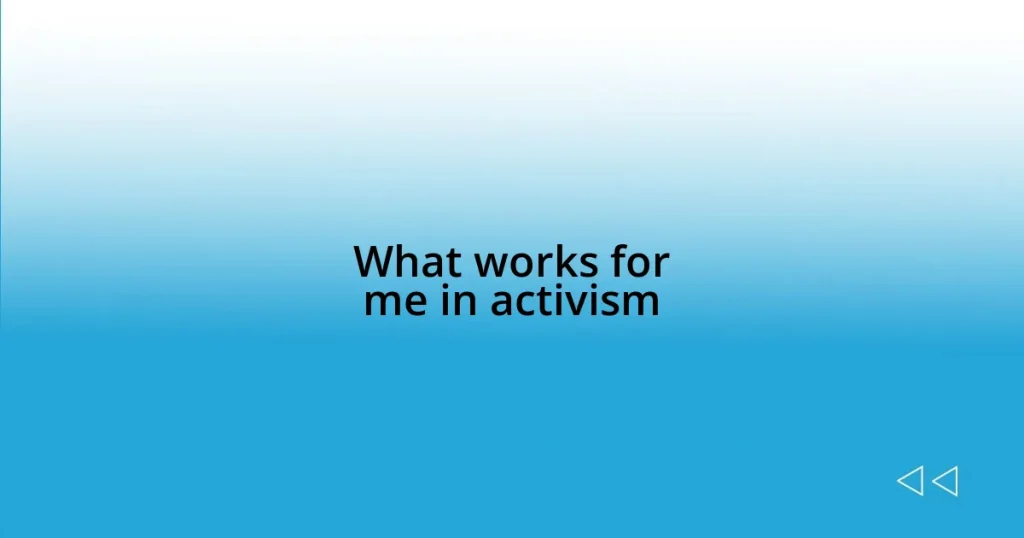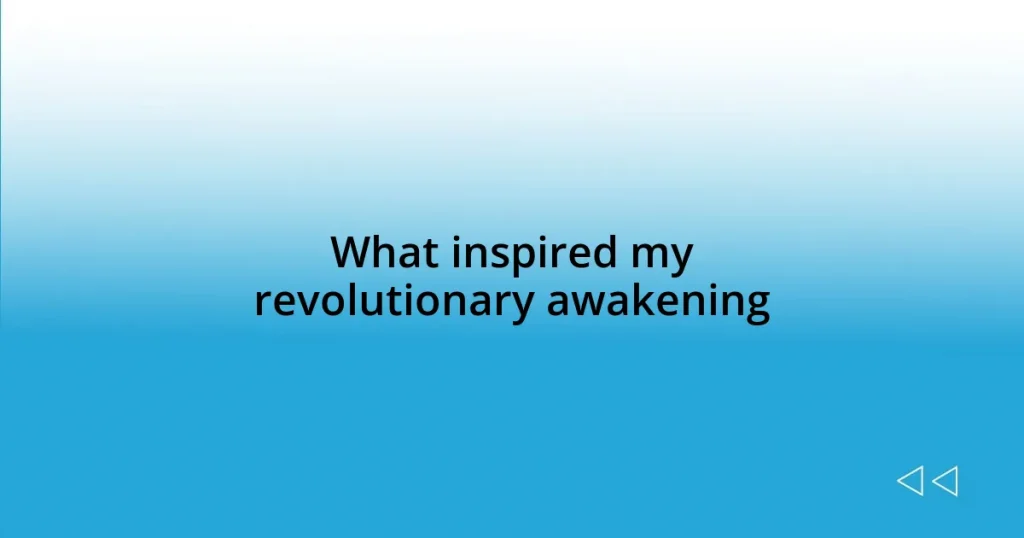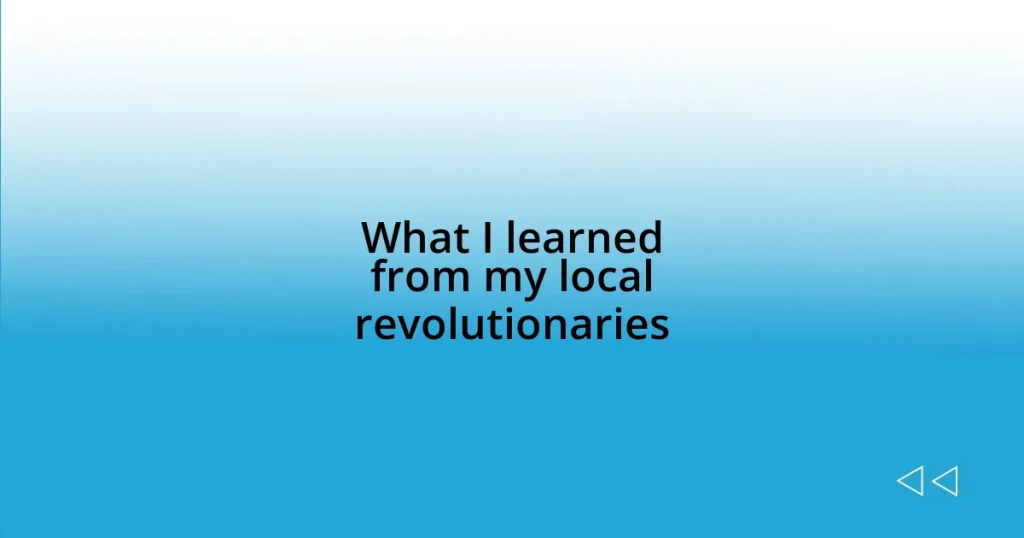Key takeaways:
- Contemporary Marxism evolves by integrating concepts of intersectionality, cultural hegemony, and environmentalism into its critique of capitalism.
- Key figures like Slavoj Žižek and Angela Davis illustrate the vibrant diversity within contemporary Marxist thought, promoting ongoing dialogue and social action.
- Engagement with contemporary Marxist literature bridges theory and personal action, encouraging critical dialogue and a deeper understanding of systemic issues.
- Collaboration on social justice initiatives emphasizes the importance of personal narratives and community involvement in addressing societal inequalities.
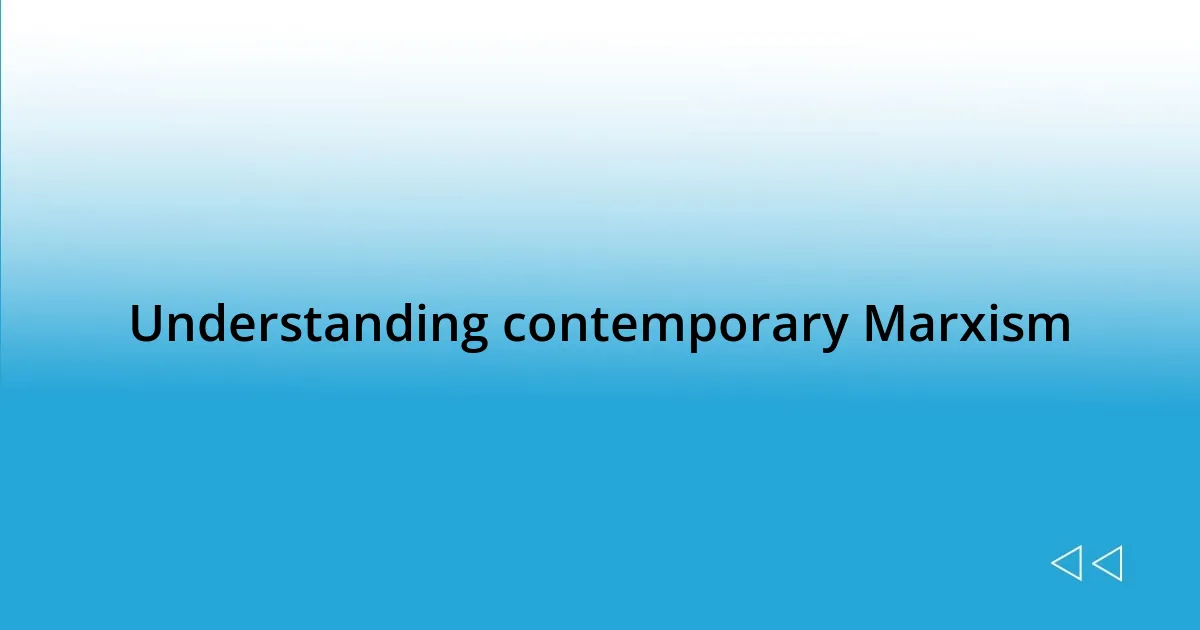
Understanding contemporary Marxism
Contemporary Marxism is a fascinating evolution of traditional Marxist thought. I remember my first encounter with this ideology during a university lecture; the professor shared how today’s Marxists often focus on the intersectionality of class struggle, race, and gender. This realization made me question—how does one ideology adapt to encompass so many different societal elements?
In my discussions with contemporary Marxists, I’ve observed that they often emphasize the importance of cultural hegemony—how dominant societal norms can shape and suppress alternative viewpoints. It struck me during a debate at a local café when a friend passionately argued that capitalism isn’t merely an economic system but a cultural one that influences our everyday lives. It leaves me wondering: can we truly dismantle oppressive structures without addressing the cultural narratives that support them?
I’ve also seen how contemporary Marxists turn towards environmentalism, integrating ecological concerns into their critique of capitalism. One evening, I joined a community meeting where we discussed the climate crisis, and it became clear that the capitalist drive for profit often overlooks environmental sustainability. This intertwining of ecological issues with class struggles raised a compelling thought—can the fight against climate change truly succeed without a fundamental shift in our economic systems?
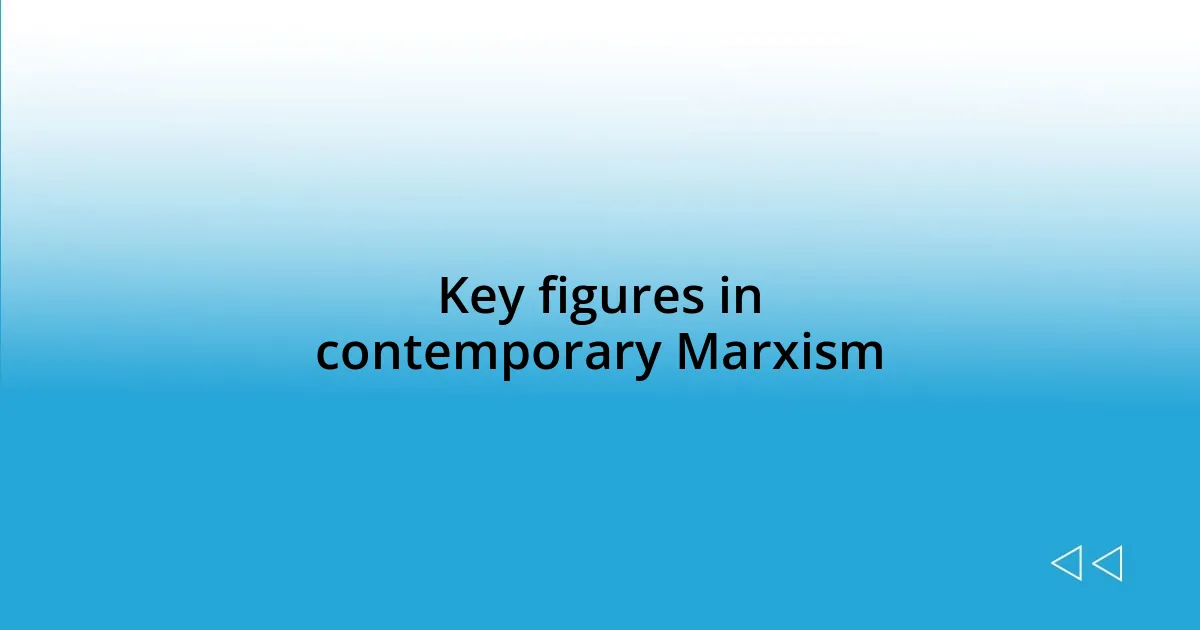
Key figures in contemporary Marxism
When I think about key figures in contemporary Marxism, a few names immediately come to mind. Each has contributed unique perspectives that enrich the conversation around Marxist theory today. For instance, the works of Slavoj Žižek often challenge traditional pieties, pushing us to consider ideology itself as a crucial player in our socio-political landscape. I recall being in a book club where we delved into his ideas; his take on desire and ideology opened up a lively debate among us that felt electric.
Here are some prominent figures shaping contemporary Marxist thought:
- Slavoj Žižek: Known for his provocative interpretations, he often intertwines psychoanalysis with Marxism.
- David Harvey: His analysis of urban spaces through a Marxist lens has been illuminating, particularly in understanding global capitalism’s impact on cities.
- Angela Davis: A powerful voice for intersectionality, she emphasizes the connections between race, class, and gender in her activism.
- Alain Badiou: His philosophical approach rethinks Marxism’s potential in a postmodern context, challenging us to think about revolutionary politics today.
- Nancy Fraser: She critiques capitalism while advocating for social justice, focusing on the intersections of power and oppression.
Reflecting on these figures often brings a sense of urgency to my thoughts on social change. Their diverse perspectives remind me that contemporary Marxism isn’t monolithic—it’s a vibrant tapestry of ideas that encourages ongoing dialogue and action.
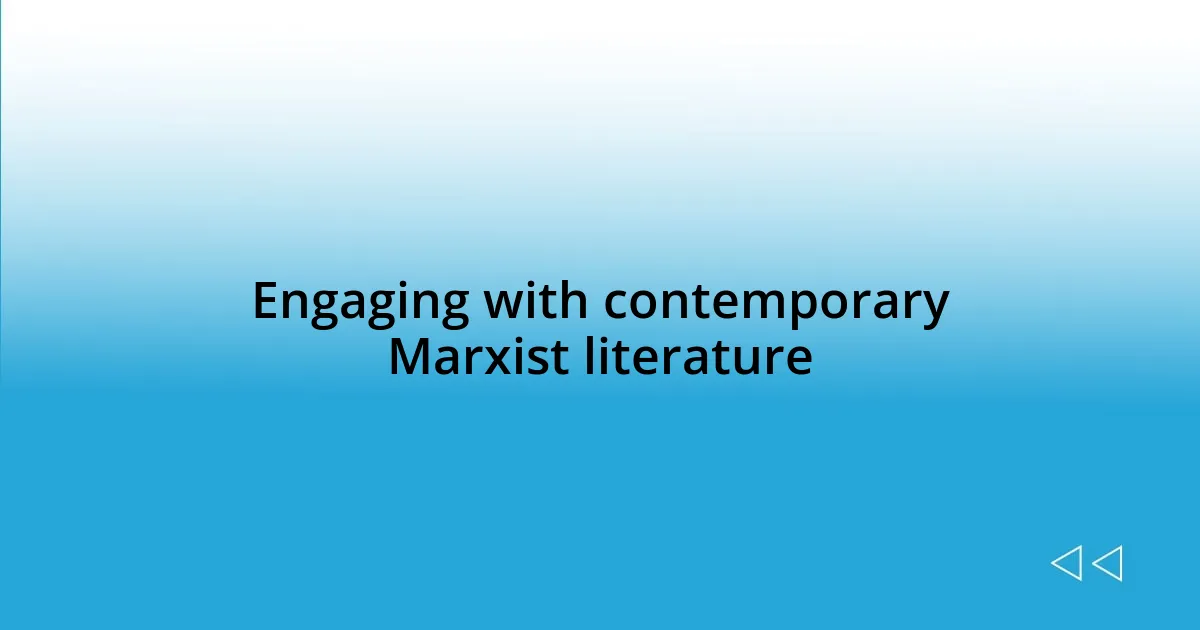
Engaging with contemporary Marxist literature
Engaging with contemporary Marxist literature has been quite an enlightening journey for me. I vividly recall the anticipation I felt when I first picked up a book by Angela Davis. Her writing resonated deeply, as she deftly intertwines personal narrative with historical analysis. It felt as if she was speaking directly to me, urging me to reflect on my own positionality within social movements. This connection highlights how contemporary literature can act as a bridge between theory and personal action.
As I delved deeper into works by authors like David Harvey, I found myself analyzing urban life through a radically different lens. I remember walking through my city, noticing the stark contrasts between affluent neighborhoods and marginalized communities. Harvey’s critiques helped me understand these disparities as products of systemic capitalist forces. I began to question: how can my own actions contribute to creating more equitable urban spaces? This kind of literature doesn’t just inform; it moves you to see the world differently.
Engaging with these texts also opens up a space for critical dialogue. For example, I once organized a reading group to unpack Slavoj Žižek’s ideas on ideology and desire. As we unpacked his complex theories, our discussions sparked passionate debates about consumerism and identity politics. It was invigorating to witness how an academic text could ignite emotional and intellectual engagement among friends. These experiences have taught me that contemporary Marxist literature isn’t just theoretical; it’s a catalyst for real-world discussions.
| Author | Main Focus |
|---|---|
| Angela Davis | Intersectionality in activism |
| David Harvey | Marxist urban analysis |
| Slavoj Žižek | Ideology and desire |
| Nancy Fraser | Social justice and capitalism |
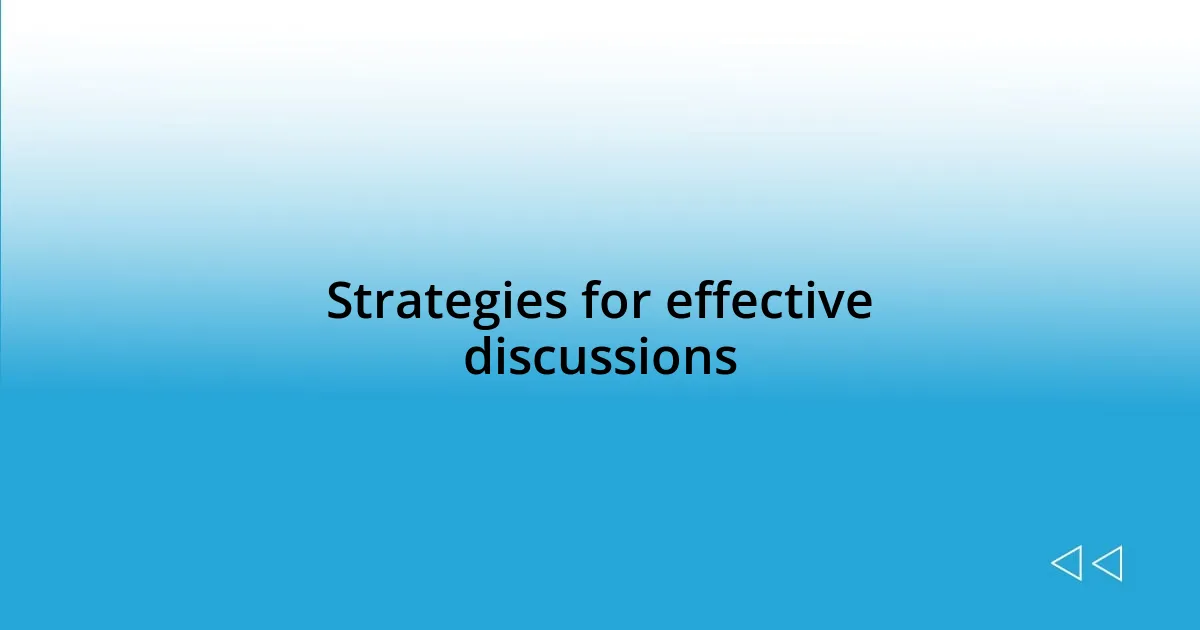
Strategies for effective discussions
To foster effective discussions with contemporary Marxists, I find it essential to approach conversations with an open mind and a genuine curiosity. I remember sitting in a cafe, engaged in a spirited debate about class dynamics, when an unexpected viewpoint challenged my own beliefs. That moment taught me that acknowledging differing opinions can lead to deeper insights. I often ask questions like, “What experiences shaped your perspective?” This not only invites dialogue but fosters an understanding that goes beyond theory.
Another strategy I’ve employed is drawing parallels between theoretical concepts and personal experiences. Recently, while discussing David Harvey’s ideas, I shared a story about my trip to a gentrified neighborhood. I could see the pain in my friends’ eyes as I described how local businesses were displaced. This personal connection not only made our discussion more relatable but also stimulated a collective emotional response. It became clear that theory isn’t just abstract; it has real-world implications that we can all relate to.
Lastly, I’ve found that grounding discussions in concrete examples can simplify complex ideas. For instance, when exploring Nancy Fraser’s critiques of capitalism, I use current events as touchstones. I often ask, “How does this resonate with the issues we face today, like the cost of living crisis?” Sharing relevant examples creates a shared understanding and makes the discussion feel much more relevant and actionable, helping all of us to see the broader implications of Marxist thought in our everyday lives.
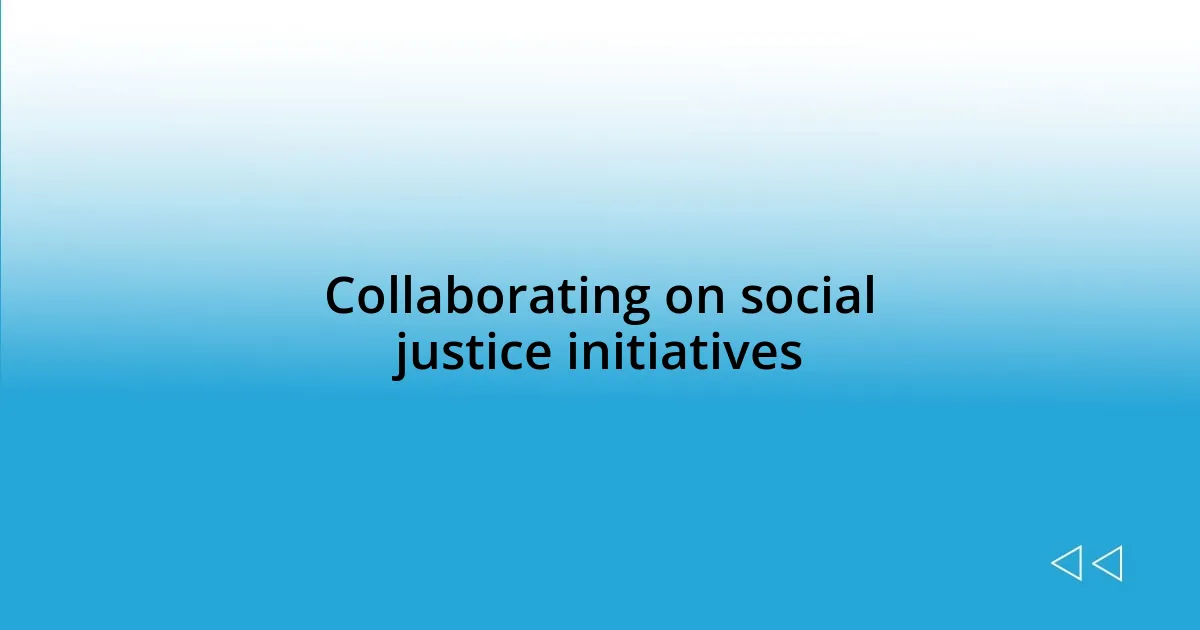
Collaborating on social justice initiatives
Collaborating on social justice initiatives has been a transformative experience for me. I remember attending a community organizing meeting where folks from various backgrounds came together to address housing inequality. The excitement in the room was palpable; we brainstormed initiatives that could genuinely affect change. As we crafted our action plan, I couldn’t help but feel a sense of unity in our shared goals, which emphasized the collective power of collaboration.
As I joined efforts with contemporary Marxists, I discovered the importance of framing our initiatives in a way that resonates on a personal level. During a local protest against displacement, I had the opportunity to listen to residents share their stories. Their experiences were powerful reminders that social justice isn’t just about policies; it’s about real lives and emotions. I often ask myself, “What can I learn from their struggles?” This question continuously shapes my approach, reminding me to place human experiences at the forefront of our fight for equity.
One vivid moment stands out: while collaborating on a community arts project, we created murals that depicted the struggles of low-income families. I felt a profound connection as community members worked side by side, pouring their stories into vibrant colors. It struck me how art can act as a vehicle for change, igniting conversations about systemic issues in ways that traditional activism often misses. How can we harness creativity to further amplify marginalized voices? It’s experiences like these that fuel my passion for working alongside contemporary Marxists in the quest for social justice.
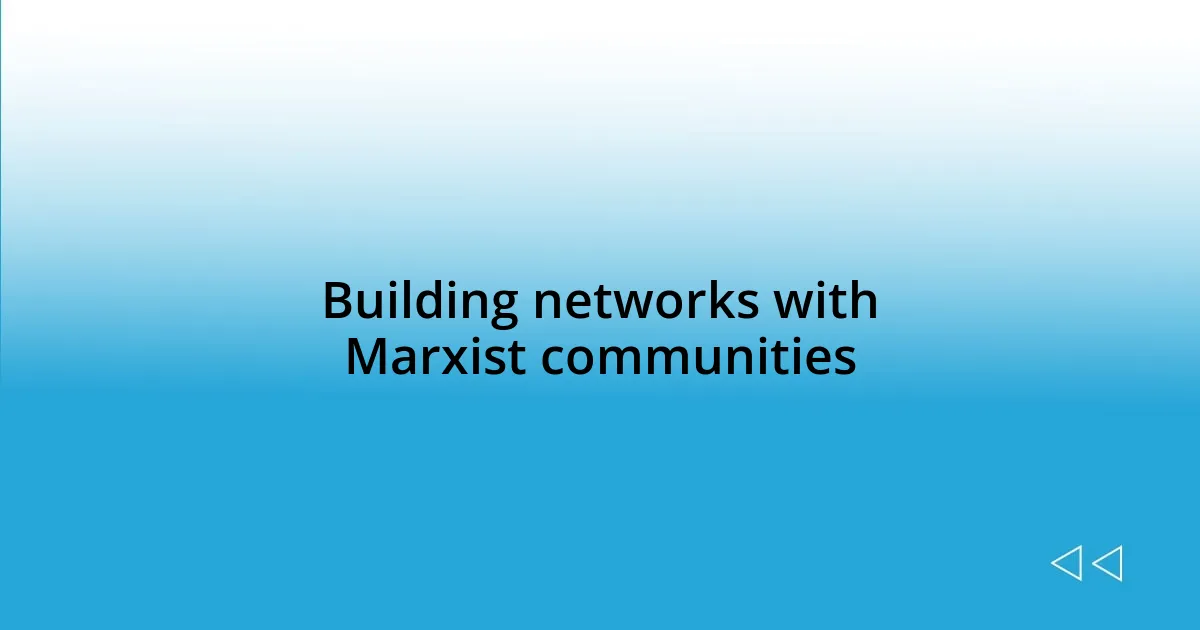
Building networks with Marxist communities
Building networks with Marxist communities has been pivotal in expanding my understanding of diverse perspectives. I recall a grassroots meeting in a local park, where individuals shared their differing views on economic systems. The energy was infectious, and as I engaged one-on-one with others, I realized the importance of creating personal connections. How often do we miss out on the wealth of wisdom sitting right next to us?
I’ve also discovered the power of online platforms for fostering connections. I joined a debate group on social media, where members shared articles and critiques that challenged mainstream narratives. The more I participated, the more I appreciated the range of opinions. I often ask myself, “What unique insights can someone from a different background provide me?” Building networks online has enriched my worldview, allowing me to learn from others regardless of geographical limitations.
Moreover, attending Marxist literature readings has introduced me to individuals who share a commitment to social change. One evening, I met someone who transformed their personal struggles into community activism in unexpected ways. Their journey reinforced the idea that building networks isn’t just about connecting with like-minded individuals; it’s about cultivating an ecosystem of support, empathy, and shared endeavors. How can we leverage these personal stories to deepen our collective understanding and commitment? Every encounter feels like a piece of a larger puzzle, and I am excited to continue uncovering those connections.


